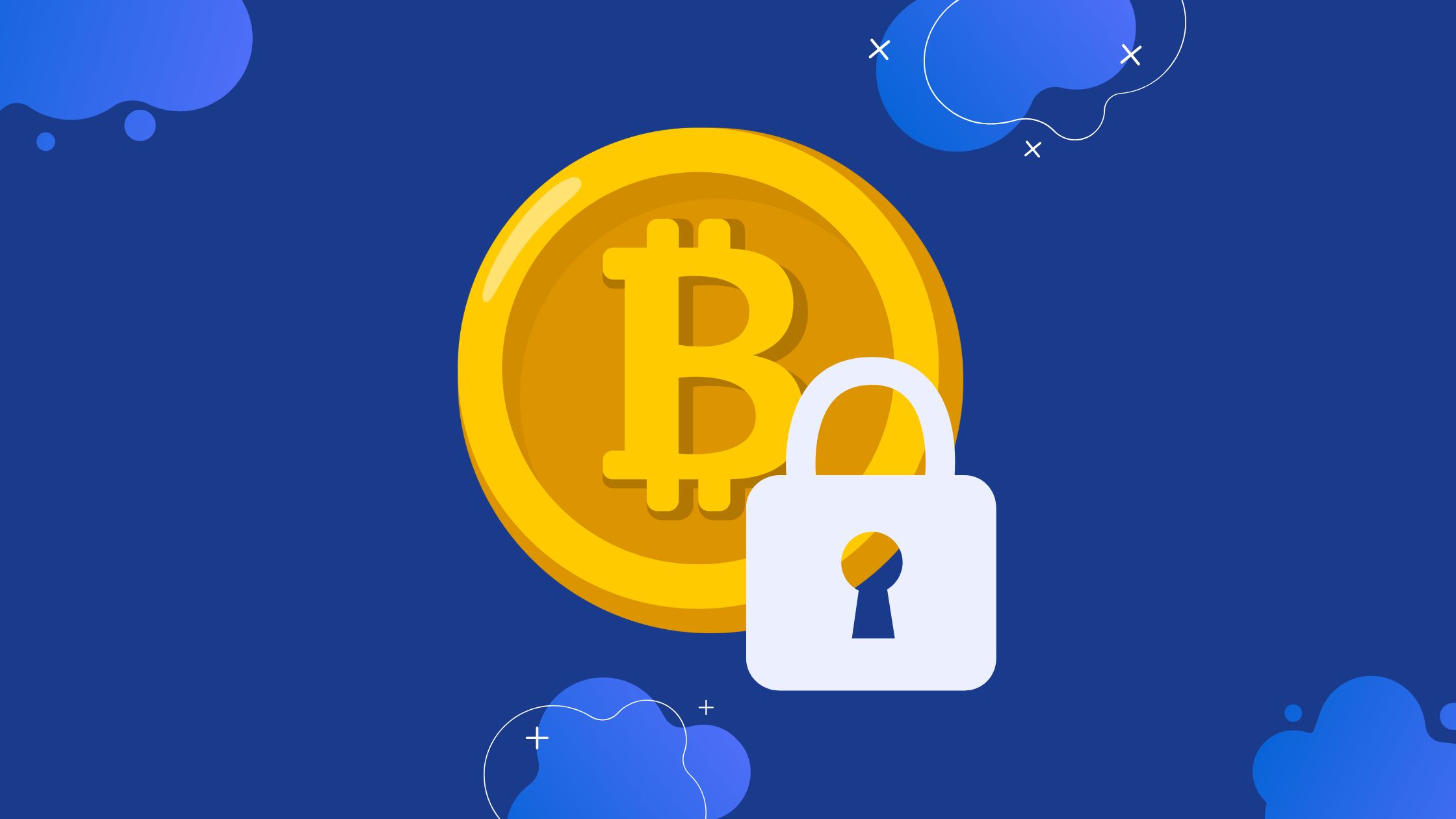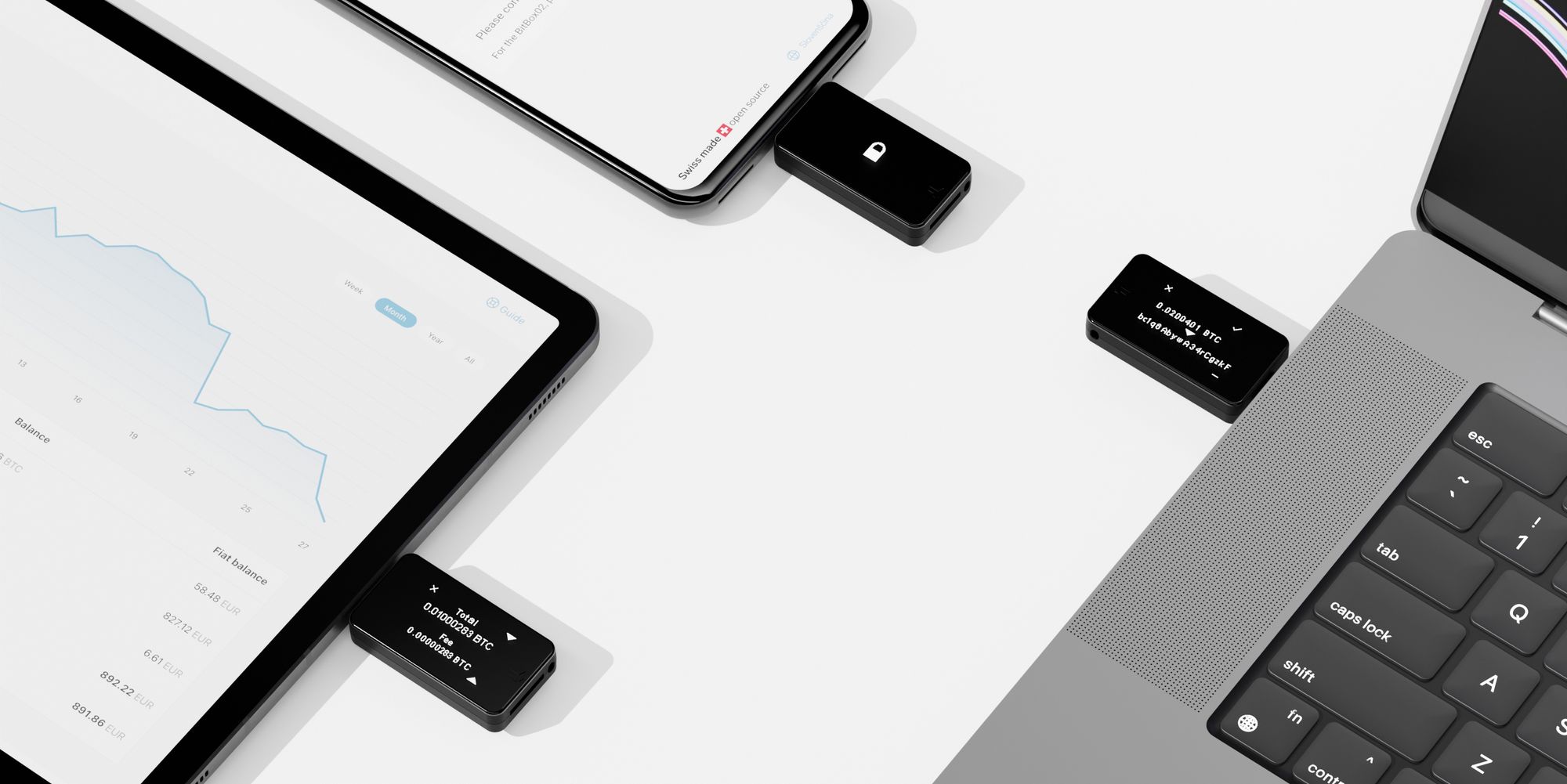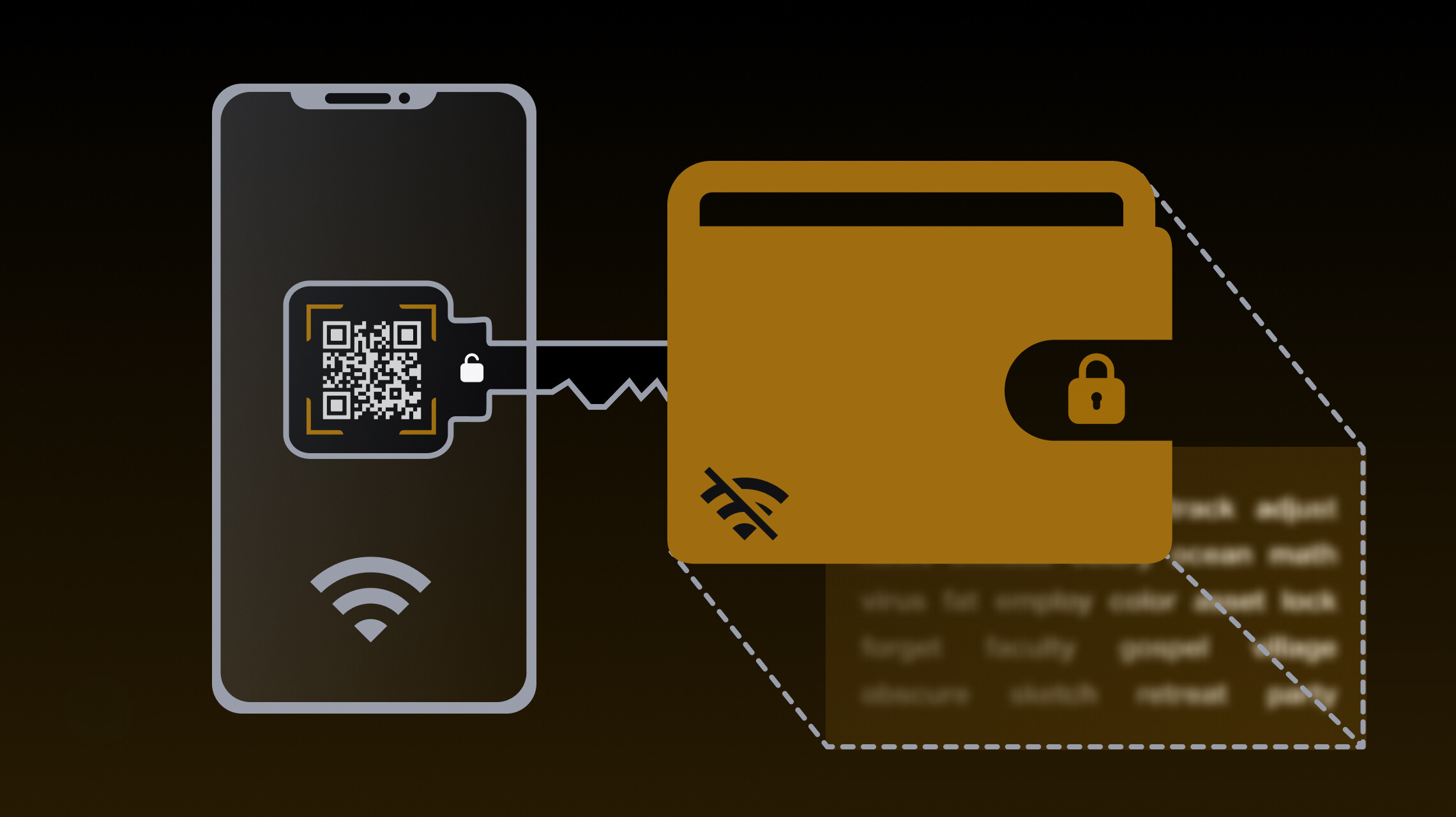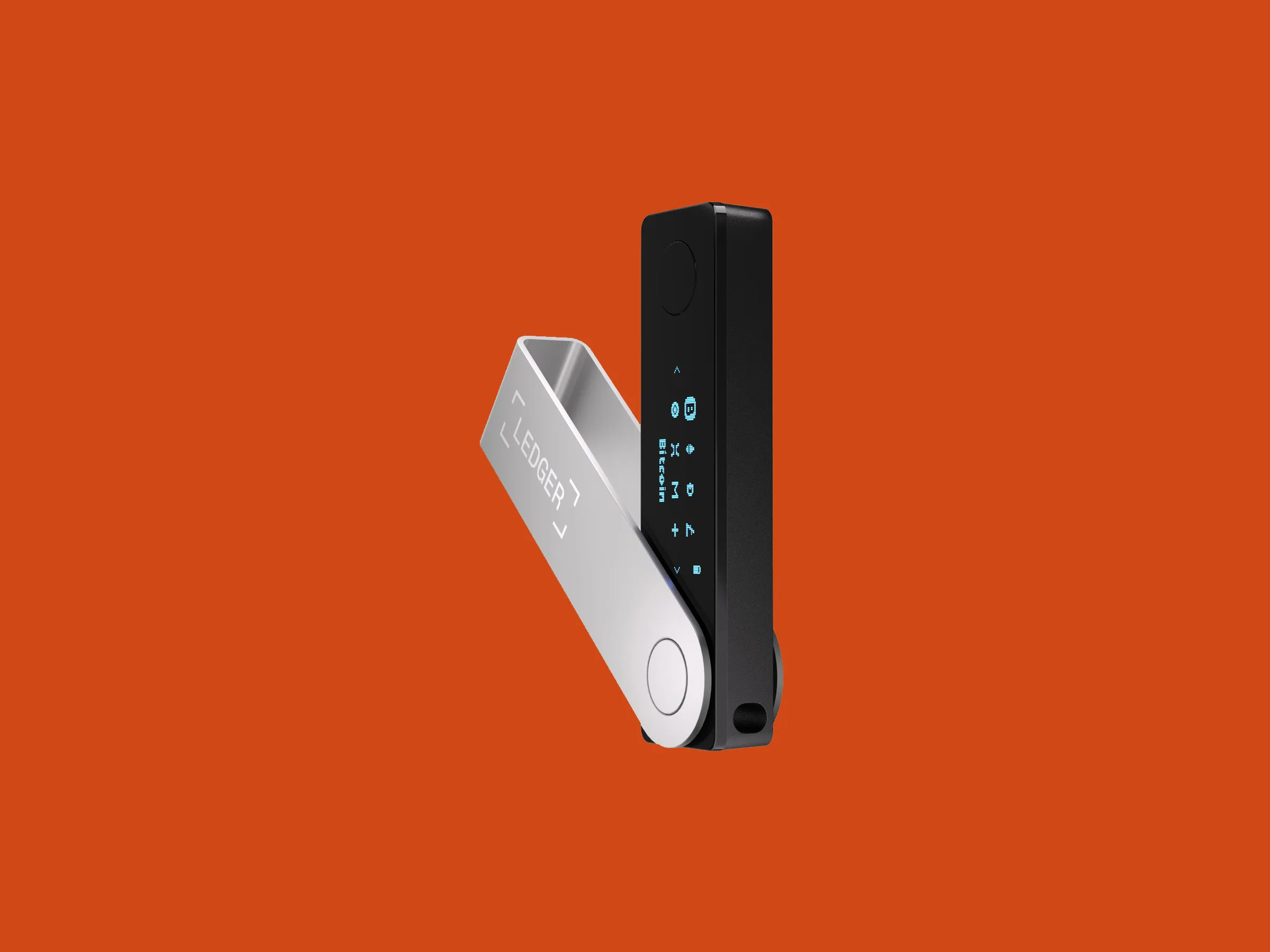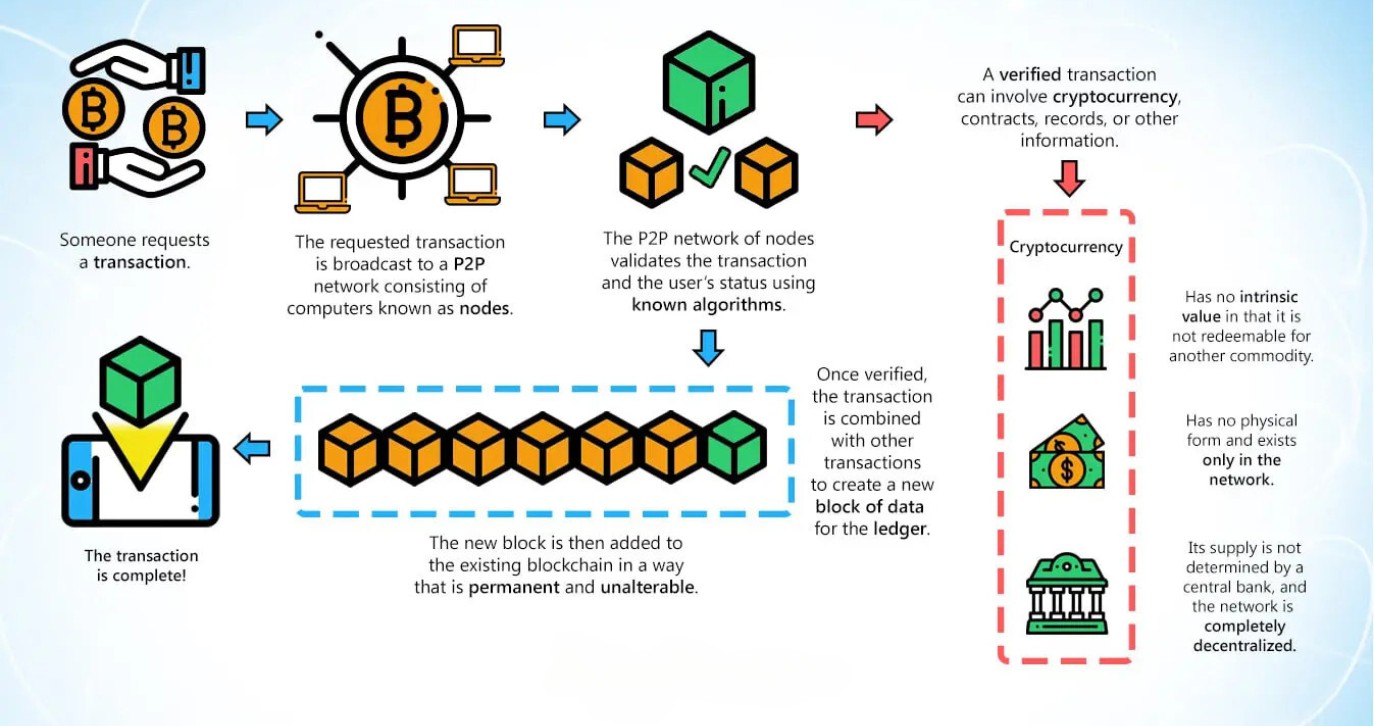Types of Cryptocurrency Storage
When it comes to storing cryptocurrency, there are several options available to users. Each option has its own advantages and considerations. Let’s explore some of the most common types of cryptocurrency storage:
- Cryptocurrency Wallets: A cryptocurrency wallet is a software program that allows users to store, send, and receive digital currencies. These wallets can be installed on computers, smartphones, or other devices.
- Hardware Wallets: Hardware wallets are physical devices, similar to a USB drive, that store a user’s private keys offline. These wallets offer enhanced security by keeping the private keys away from potential online threats.
- Online Wallets: Online wallets, also known as web wallets, are cloud-based wallets that allow users to access their cryptocurrency from any device with an internet connection. While convenient, online wallets can be more vulnerable to hacking.
- Paper Wallets: A paper wallet is a physical printout or handwritten note that contains a user’s public and private keys. Paper wallets are considered highly secure since they are not connected to the internet, but they can be easily damaged or lost.
- Desktop Wallets: Desktop wallets are software programs that are installed and stored on a user’s computer. These wallets provide users with full control over their private keys and offer a balance between security and convenience.
- Mobile Wallets: Mobile wallets are apps designed specifically for smartphones or tablets. They allow users to conveniently access and manage their cryptocurrency on the go. However, mobile wallets can be vulnerable to security risks associated with the device.
- Exchange Wallets: Many cryptocurrency exchanges provide users with built-in wallets to store their digital assets. While convenient for trading, it is generally not recommended to keep large amounts of cryptocurrency in exchange wallets due to security concerns.
- Cold Storage: Cold storage refers to the practice of keeping cryptocurrency offline, away from potential online threats. Examples of cold storage include hardware wallets, paper wallets, and offline storage devices.
- Hot Wallets: Hot wallets are online wallets or wallets connected to the internet. They are more convenient for frequent transactions, but they can be more susceptible to hacking attempts.
- Brain Wallets: Brain wallets are a type of passphrase-based wallet where the private key is derived from a user’s memorable phrase. While considered convenient, if the passphrase is weak or compromised, it can lead to the loss of funds.
Choosing the right type of cryptocurrency storage depends on various factors, such as the level of security desired, ease of use, and the amount of cryptocurrency being stored. It is important to assess these factors carefully and make an informed decision to ensure the safety of your digital assets.
Cryptocurrency Wallets
Cryptocurrency wallets are software programs that allow users to store, send, and receive digital currencies. These wallets function similarly to a traditional wallet, but instead of holding physical cash or cards, they store cryptographic keys that provide access to the user’s digital assets.
There are different types of cryptocurrency wallets available, each providing varying levels of security and convenience:
- Software Wallets: Also known as hot wallets, software wallets are applications that can be installed on computers, smartphones, or other devices. They provide quick and easy access to digital assets. However, as these wallets are connected to the internet, they may be more susceptible to hacking attempts.
- Hardware Wallets: Hardware wallets are physical devices specifically designed to store cryptocurrency securely. They are usually small, portable devices that can be connected to a computer or smartphone via a USB or Bluetooth connection. Hardware wallets keep the private keys offline, adding an extra layer of security and protection against online threats.
- Paper Wallets: Paper wallets are printed or written records that include the public and private keys necessary for accessing and managing cryptocurrency. Since these wallets are offline and not connected to the internet, they are highly secure. However, they can be easily damaged or lost, so it is crucial to keep them in a safe and secure location.
- Online Wallets: Online wallets, also known as web wallets, are cloud-based wallets hosted by a third-party service provider. These wallets can be accessed from any device with an internet connection. While online wallets offer convenience, users need to ensure that they choose a reputable, trustworthy provider to minimize the risk of hacking or theft.
- Desktop Wallets: Desktop wallets are software programs that are installed on a user’s computer. They provide users with complete control over their private keys and offer a higher level of security compared to online wallets. However, desktop wallets can be vulnerable to malware or computer viruses, so it is important to keep the computer’s security measures up to date.
- Mobile Wallets: Mobile wallets are applications designed specifically for smartphones or tablets. They offer the convenience of accessing and managing cryptocurrency on the go. As with other software wallets, it’s important to ensure the security measures of the mobile device are robust to protect against potential threats.
When choosing a cryptocurrency wallet, it is essential to consider factors such as security, ease of use, and the specific needs of the user. It is recommended to use a combination of wallets, like a hardware wallet for long-term storage and a software or mobile wallet for day-to-day transactions, to balance security and convenience.
Hardware Wallets
Hardware wallets provide an enhanced level of security for storing cryptocurrency. These physical devices, often resembling USB drives, are specifically designed to keep private keys offline, away from potential online threats.
Here are some key features and benefits of using hardware wallets:
- Offline Storage: Hardware wallets store private keys offline, making them less vulnerable to hacking attacks or malware. This offline storage ensures that the private keys are not exposed to the internet, reducing the risk of unauthorized access.
- Secure Chip: Hardware wallets are equipped with secure chips that handle the cryptographic operations required for signing transactions. These chips are designed to resist tampering and protect the private keys stored within the device.
- Backup and Recovery: Hardware wallets provide users with the ability to create a backup of their private keys. This backup may consist of a recovery phrase or seed words, allowing users to recover their funds in case the hardware wallet is lost, stolen, or damaged.
- User-Friendly Interface: Most hardware wallets come with a user-friendly interface that simplifies the process of managing cryptocurrencies. The wallet’s screen and buttons allow users to navigate through menus, confirm transactions, and view balances securely.
- Multi-Currency Support: Hardware wallets often support multiple cryptocurrencies, allowing users to store and manage various digital assets in one device. This versatility makes hardware wallets a convenient option for users with diversified crypto portfolios.
- Third-Party App Integration: Many hardware wallets support integration with third-party applications, allowing users to access additional features or interact with popular cryptocurrency platforms. Examples include integrations with decentralized finance (DeFi) platforms or blockchain explorers.
- Peace of Mind: Using a hardware wallet can provide peace of mind, knowing that your private keys are safely stored offline. This added security can alleviate concerns about losing funds due to online threats or human error.
While hardware wallets offer excellent security features, it’s important to keep in mind a few considerations. These include purchasing from reputable sources to ensure the authenticity of the hardware wallet and keeping the device and recovery phrase in a safe and secure location to prevent unauthorized access.
Overall, hardware wallets provide an ideal solution for individuals looking to maximize the security of their cryptocurrency holdings. By keeping private keys offline and utilizing advanced security features, hardware wallets offer users peace of mind and confidence in their digital asset storage.
Online Wallets
Online wallets, also known as web wallets, are cloud-based platforms that allow users to store and manage their cryptocurrency through an online interface. These wallets provide convenience and accessibility, as users can access their digital assets from any device with an internet connection.
Here are some key points to know about online wallets:
- Convenience: One of the main advantages of online wallets is their convenience. Users can easily create an account, access their wallet, and manage their cryptocurrency without the need to download or install any software.
- Easy Accessibility: Online wallets can be accessed from any device with an internet connection. This flexibility allows users to manage their digital assets on the go, providing a seamless experience across different platforms such as computers, smartphones, and tablets.
- Blockchain Synchronization: Online wallets typically synchronize with the blockchain network, allowing users to view their transaction history and current balance in real-time. This feature provides transparency and helps users track their assets more effectively.
- Security Measures: Reputable online wallet providers prioritize security and implement various measures to protect users’ funds. This includes encryption of sensitive data, two-factor authentication (2FA), and measures to guard against unauthorized access and potential hacking attempts.
- Third-Party Trust: When using online wallets, users need to trust the service provider with whom they entrust their private keys. Therefore, it is imperative to choose a reputable and trustworthy online wallet provider to minimize the risk of security breaches.
- Potential Risks: While online wallets offer convenience, they also come with certain risks. Online wallets are connected to the internet, which can expose them to potential hacking attempts or security breaches. Users need to remain vigilant with their online security practices and employ strong passwords, 2FA, and other recommended security measures.
- Hot Wallets: Online wallets are considered “hot wallets” because they are connected to the internet. While this provides easy accessibility, hot wallets are generally more susceptible to hacking attempts compared to “cold storage” options such as hardware wallets or paper wallets.
Individuals considering an online wallet should evaluate their security needs and risk tolerance. It’s important to select a reputable online wallet provider that encrypts user data, implements strong security measures, and has a track record of reliable service.
Overall, online wallets provide a convenient option for individuals who require frequent access to their cryptocurrency and prioritize ease of use. However, it is crucial to balance convenience with security considerations and take appropriate precautions to protect your digital assets.
Paper Wallets
Paper wallets are a type of offline cryptocurrency storage that involves printing or writing down your public and private keys on a physical piece of paper. Unlike other storage methods, paper wallets do not rely on electronic devices or an internet connection.
Here are some key points to know about paper wallets:
- Security: Paper wallets are considered one of the most secure storage methods as they are offline and not susceptible to online hacking attacks. Since they are not stored on any device or network, the chances of unauthorized access are significantly reduced.
- Creation: To create a paper wallet, you generate a pair of public and private keys using a reliable offline key generator. The keys are printed or written on a piece of paper and should be stored securely to prevent loss or damage.
- No Digital Footprint: Since paper wallets are offline, they leave no digital footprint, making them an attractive choice for those concerned about privacy. As a result, they are not susceptible to malware, phishing attempts, or other digital threats.
- Backup and Recovery: It’s essential to make multiple copies of your paper wallet and store them in separate secure locations. This redundancy ensures that you have a backup in case one copy gets lost or damaged. Additionally, you can store a copy of your paper wallet in a safe deposit box or a waterproof and fireproof container.
- Vulnerabilities: While paper wallets provide excellent security, they are not without vulnerabilities. The physical paper can be destroyed, lost, or stolen, leading to a permanent loss of funds. It’s crucial to protect the paper wallet from water damage, fire, and theft.
- Transferring Funds: To use the funds stored in a paper wallet, you need to import or sweep the private key into a software or hardware wallet. This process involves transferring the funds to a secure online or offline wallet to make transactions.
When creating and using a paper wallet, it is essential to follow best practices and security measures:
- Generate the keys on an offline computer to minimize the risk of exposing the private key to online threats.
- Ensure the computer and printer you use for generating the keys are secure and free from malware or potential vulnerabilities.
- Use a secure printer and high-quality paper to avoid fading or damage to the printed keys.
- Keep the paper wallet in a safe and secure location, away from potential hazards such as water, fire, or theft.
- Regularly check the condition of your paper wallet and consider creating a new one if there are signs of deterioration or damage.
While paper wallets provide excellent security, they require careful handling and storage. Users must assess their risk tolerance and consider their ability to safely store and protect a physical piece of paper containing their private keys.
Desktop Wallets
Desktop wallets are cryptocurrency wallets that are installed and stored on a user’s computer. They provide users with full control over their private keys and offer a balance between security and convenience.
Here are some key points to know about desktop wallets:
- Security: Desktop wallets are considered more secure than online wallets as they are stored locally on the user’s computer. This reduces the risk of potential hacking or unauthorized access through online vulnerabilities.
- Control of Private Keys: Desktop wallets give users complete control over their private keys, which are stored locally on their computer. This allows users to have direct ownership and responsibility for their funds without relying on a third-party service provider.
- Encryption: Most desktop wallets offer encryption features to protect the wallet file and private keys. This adds an extra layer of security, ensuring that even if someone gains access to the computer or the wallet file, the funds remain secure.
- Backup and Recovery: Desktop wallets usually provide a backup feature that allows users to create a copy of the wallet file or seed phrase. This backup is crucial in case of computer failure, loss, or theft, as it enables the recovery of funds with the private keys.
- User Experience: Desktop wallets often provide a user-friendly interface that allows users to manage their cryptocurrency portfolio easily. Users can view their balances, send and receive transactions, and monitor their transaction history all within the desktop application.
- Multicurrency Support: Many desktop wallets support multiple cryptocurrencies, making them suitable for users with diversified portfolios. This saves users from having to use different wallets for each cryptocurrency they own.
- Software Updates: Desktop wallets regularly release software updates to enhance security and add new features. Staying up to date with these updates is crucial to ensure the wallet’s functionality and protection against potential vulnerabilities.
- Computer Security: It is important to maintain robust cybersecurity practices on the computer where the desktop wallet is installed. This includes using reputable antivirus software, applying regular operating system updates, and avoiding downloading suspicious files or visiting untrusted websites.
Desktop wallets provide users with increased security and control over their cryptocurrency holdings. However, it’s important to consider the risk of computer failures, malware, or physical damage to the computer where the wallet is installed. Regular backups and adherence to proper cybersecurity practices can help mitigate these risks.
Choosing a desktop wallet involves considering factors such as security features, ease of use, and compatibility with the cryptocurrencies you own. It is recommended to research and choose a reputable wallet that has been audited for security and has a good reputation within the cryptocurrency community.
Mobile Wallets
Mobile wallets, as the name suggests, are cryptocurrency wallets specifically designed for smartphones or tablets. They offer users the convenience of managing their digital assets on the go, providing quick and easy access to their cryptocurrency holdings.
Here are some key points to know about mobile wallets:
- Convenience: One of the main advantages of mobile wallets is their convenience. Users can carry their cryptocurrency wallet in their pocket and access it whenever they need to make transactions or check their balances.
- Easy Accessibility: Mobile wallets can be downloaded and installed as applications on smartphones or tablets, making them easily accessible on a variety of devices.
- User-Friendly Interface: Mobile wallets often have intuitive user interfaces that are designed for touchscreens. The apps are optimized for mobile usage, providing users with a seamless and efficient experience.
- Portability: With a mobile wallet, users can manage their cryptocurrencies from anywhere with an internet connection. This portability is ideal for individuals who need to conduct transactions on the go or while traveling.
- Security Features: Reputable mobile wallets implement robust security measures such as encryption and pin-code or biometric authentication to protect user funds. These features help ensure that unauthorized access to the wallet is prevented.
- QR Code Scanning: Mobile wallets often have built-in QR code scanning capabilities. This allows users to easily scan QR codes to make transactions or receive payments without manually entering the recipient’s wallet address.
- Integration with Mobile Services: Many mobile wallets integrate with other mobile services, such as messaging apps or social media platforms, to facilitate easy peer-to-peer transactions with friends and contacts.
- Backup and Recovery: Mobile wallets usually provide a backup feature that allows users to recover their wallet and funds in case of a lost or stolen device. Users can typically restore their wallet by using a recovery phrase or backup file.
- Third-Party Trust: Users must exercise caution when choosing a mobile wallet and ensure they select a reputable provider. It’s important to research and choose a wallet that has a good reputation, strong security, and positive reviews.
Using a mobile wallet offers convenience and accessibility for managing cryptocurrency on the go. However, it’s important to keep the following considerations in mind:
- Ensure your mobile device has updated security measures, including antivirus software, strong passwords or biometric authentication, and secure operating system updates.
- Be cautious of installing mobile wallet apps from untrusted sources or clicking on suspicious links that could lead to phishing attempts.
- If your mobile device is lost or stolen, take immediate action to protect your funds by reporting the incident and using the backup and recovery options provided by the wallet.
Overall, mobile wallets provide a convenient and accessible option for managing cryptocurrency on the go. By choosing a reputable wallet and maintaining good mobile security practices, users can securely manage their digital assets with ease.
Exchange Wallets
Exchange wallets refer to the wallets provided by cryptocurrency exchanges to store and manage digital assets traded on their platforms. These wallets are often integrated directly into the exchange interface, allowing users to conveniently access their funds for trading purposes.
Here are some key points to know about exchange wallets:
- Convenience: Exchange wallets are convenient for users who frequently engage in cryptocurrency trading. The wallets are seamlessly integrated into the exchange platform, allowing users to quickly and easily access their funds.
- Easy Transactions: With exchange wallets, users can easily deposit and withdraw their funds directly on the exchange. This eliminates the need to transfer funds between an external wallet and the exchange, streamlining the trading process.
- Liquidity: Exchange wallets provide immediate access to funds for trading purposes without the need to wait for confirmations on the blockchain. This allows traders to capitalize on market opportunities efficiently.
- Security Considerations: While reputable exchanges implement security measures to protect user funds, exchange wallets carry some level of risk. Hackers may target exchanges, potentially leading to the loss of stored funds. It is advisable to keep large amounts of cryptocurrency in personal wallets with stronger security features.
- Third-Party Control: When using exchange wallets, users essentially entrust their funds to the exchange. This means that the security and availability of funds depend on the reliability and reputation of the exchange itself.
- Regulatory Compliance: Exchange wallets are subject to the regulations and policies imposed by the respective cryptocurrency exchanges. Users should be aware of these policies, including any restrictions or fees associated with using the exchange wallet.
- Limited Access to Private Keys: In most cases, users do not have direct access to the private keys associated with their exchange wallets. The exchange holds and manages the private keys on behalf of the user, which means the user may have limited control over their funds.
- Considerations for Long-Term Storage: If you plan to hold cryptocurrency for an extended period, it is generally recommended to transfer the funds from the exchange wallet to a more secure wallet, such as a hardware or software wallet that gives you full control over your private keys.
When using exchange wallets, it is important to choose a reputable cryptocurrency exchange with a strong track record and robust security measures. It is also advisable to enable two-factor authentication (2FA) and regularly review the security features offered by the exchange to ensure the safety of your funds.
Exchange wallets are suitable for individuals actively trading cryptocurrencies and require quick access to their funds. However, it is important to exercise caution and maintain secure practices when storing significant amounts of cryptocurrency on an exchange.
Cold Storage
Cold storage is a method of securely storing cryptocurrency offline, away from potential online threats. It involves keeping the private keys offline, providing an extra layer of protection against hacking attempts and unauthorized access.
Here are some key points to know about cold storage:
- Enhanced Security: Cold storage is widely regarded as one of the most secure methods of storing cryptocurrency. By storing the private keys offline, it minimizes the risk of online hacking attacks or malware compromising the funds.
- Types of Cold Storage: There are several types of cold storage methods available, including hardware wallets, paper wallets, and offline storage devices. These options allow users to store their private keys offline and away from potential online vulnerabilities.
- Protection Against Physical Damage: Unlike digital storage methods, cold storage is not susceptible to physical damage caused by hardware failures, computer crashes, or other technical issues. This reduces the risk of permanently losing funds due to hardware malfunctions.
- Backup and Recovery: With cold storage, it is crucial to create proper backups of the private keys. This backup ensures that even if the physical storage medium is lost or damaged, the funds can be recovered using the backup.
- Offline Transactions: Cold storage wallets can facilitate transactions even while offline. The private keys are used to sign offline transactions, which can then be broadcasted to the network using a separate device connected to the internet.
- Resilience to Cyber Attacks: Since cold storage wallets are offline, they are less vulnerable to cyber attacks such as malware, phishing attempts, and remote exploits. This adds an extra layer of protection against various online threats.
- Secure Storage Practices: It is crucial to follow proper storage practices when using cold storage. This includes keeping backups in secure locations, safeguarding paper wallets from physical damage or loss, and protecting hardware wallets from unauthorized access.
- Trade-Off: Accessibility vs. Security: Cold storage, while highly secure, can be less convenient in terms of accessibility compared to other online or mobile wallets. Users need to weigh the trade-off between security and accessibility based on their specific needs and risk tolerance.
When utilizing cold storage for cryptocurrency, it is essential to understand the responsibilities and precautions that come with it. Users must ensure they have proper backups, implement strong security practices, and regularly update their wallets to stay protected.
Cold storage is recommended for individuals who value enhanced security and are willing to sacrifice some convenience in terms of easy access to their funds. By utilizing cold storage methods, users can significantly minimize the risk of unauthorized access and ensure the long-term security of their cryptocurrency holdings.
Hot Wallets
Hot wallets are cryptocurrency wallets that are connected to the internet. Unlike cold storage options, hot wallets provide immediate online access to funds, making them convenient for frequent transactions. However, it’s important to note that hot wallets can be more susceptible to hacking attempts and online security risks.
Here are some key points to know about hot wallets:
- Convenience: Hot wallets offer users the convenience of quick and easy access to their funds. Users can make transactions, check balances, and manage their cryptocurrency holdings using a computer, smartphone, or other internet-connected devices.
- Frequent Transactions: Hot wallets are ideal for individuals who engage in regular cryptocurrency transactions, such as day traders or individuals making frequent purchases with digital assets. Hot wallets provide immediate access to funds for seamless transaction execution.
- Third-Party Control: Using a hot wallet usually involves trusting a third-party service provider to safeguard the private keys. This means that the security and availability of funds depend on the reliability and reputation of the service provider.
- Security Measures: Reputable hot wallet providers implement security measures to protect user funds. These measures may include encryption, secure password policies, and two-factor authentication (2FA). It is crucial to choose a trusted hot wallet provider with robust security practices.
- Risk of Online Attacks: Hot wallets are connected to the internet, making them more vulnerable to hacking attempts or phishing attacks compared to offline storage options. Users must be vigilant about cybersecurity measures and stay updated on potential threats.
- Mobile and Web Wallets: Hot wallets can be found in the form of mobile wallets, which operate through smartphone applications, or web wallets, which are accessible through web browsers. Mobile wallets offer on-the-go accessibility, while web wallets provide cross-device compatibility.
- Backup and Recovery: Users should create proper backups of their hot wallets to prepare for unforeseen events like device loss, damage, or failure. Some hot wallets offer recovery phrases or backup files that can be used to restore the wallet in case of emergencies.
- Trade-Off: Accessibility vs. Security: Hot wallets prioritize convenience and accessibility over maximum security. While they offer convenience, users must consider the potential security risks associated with online storage and balance them against their personal needs and risk tolerance.
When using a hot wallet, it is crucial to follow best security practices, such as using strong and unique passwords, enabling two-factor authentication (2FA), and keeping software and devices up to date with the latest security patches.
Hot wallets are suitable for individuals who frequently engage in cryptocurrency transactions and require immediate access to their funds. However, users must remain vigilant and proactive in maintaining the security of their hot wallets to protect against potential online threats.
Brain Wallets
Brain wallets are a unique type of cryptocurrency wallet that generates private keys from a user’s memorable passphrase or seed phrase. Instead of relying on physical storage or electronic devices, brain wallets rely on the user’s memory to generate and access their cryptocurrency funds.
Here are some key points to know about brain wallets:
- Create a Passphrase: Users generate a passphrase or seed phrase, which is a sequence of words or characters that they can easily remember. The passphrase should be complex and unique to ensure its strength against potential brute-force attacks or hacking attempts.
- Derive Private Key: The brain wallet converts the passphrase or seed phrase into a private key using a deterministic algorithm. This private key is then used to generate the corresponding public address for sending and receiving funds.
- Security Considerations: The security of a brain wallet depends on the strength and uniqueness of the passphrase. It is crucial to choose a passphrase that is not easily guessable or prone to known dictionary attacks. If the passphrase is weak, compromised, or forgotten, it can lead to a permanent loss of funds.
- Risks and Vulnerabilities: Brain wallets have inherent risks due to the reliance on human memory. They are vulnerable to common pitfalls such as forgetfulness, mistyping, or the underlying passphrase being discovered or guessed by others. It is important to choose a secure passphrase and regularly assess its strength.
- Backup and Recovery: Since brain wallets are not stored physically or electronically, users must remember their passphrase or seed phrase without relying on external backups. It is crucial to consider memorization techniques or physical backups in a secure and confidential manner.
- Unique User Experience: Using a brain wallet provides a unique and memorable user experience. Instead of relying on physical wallets or digital interfaces, users can access their funds directly from their memory, adding a personal touch to the management of their cryptocurrency.
- Considerations for Long-Term Storage: Brain wallets can be used for both long-term and short-term storage of cryptocurrency. However, it is important to periodically assess the strength and memorability of the passphrase and consider alternatives if necessary.
- Supplemental Security Measures: Some brain wallets offer additional security measures such as additional passwords or second-factor authentication to enhance the security of the wallet and protect against potential passphrase compromises.
While brain wallets offer a unique approach to cryptocurrency storage, they come with significant risks and responsibilities. It is crucial to carefully choose a strong and memorable passphrase, regularly assess its strength, and ensure that it remains confidential and secure.
Brain wallets may be suitable for users who value memorability and wish to maintain an extra layer of security by keeping their private keys solely in their memory. However, users must consider the potential risks and vulnerabilities associated with relying solely on their ability to recall the passphrase.
How Cryptocurrency Storage Works
Cryptocurrency storage involves the secure management of digital assets, ensuring that private keys, which grant access to the funds, are stored safely. Understanding how cryptocurrency storage works is essential for users to protect their assets effectively.
Here’s a breakdown of how cryptocurrency storage works:
- Public and Private Keys: Cryptocurrencies like Bitcoin and Ethereum use a public-key cryptography system. Public keys are derived from private keys and are used to generate the recipient address for receiving funds. Private keys, on the other hand, are unique secret codes that allow users to access and transfer their cryptocurrency.
- Cryptocurrency Wallets: Cryptocurrency wallets are software programs or physical devices that store private keys. Wallets can be online (e.g., web wallets) or offline (e.g., hardware wallets), and users can choose the type that best fits their security needs and convenience.
- Address Generation: When a user sets up a wallet, it generates a unique public address associated with their wallet. This address is used to receive funds from other users or exchanges.
- Transaction Execution: To initiate a transaction, the user provides their private key to sign the transaction using cryptographic algorithms. This signature proves ownership and ensures the integrity of the transaction.
- Blockchain Network: The decentralized nature of cryptocurrencies relies on a blockchain network to validate and record transactions. When a transaction occurs, it is broadcasted to the network, verified by miners, and added to a block in the blockchain, ensuring its immutability.
- Security Measures: Cryptocurrency storage emphasizes strong security measures to protect private keys and prevent unauthorized access. This includes using secure wallets, enabling two-factor authentication (2FA), employing encryption techniques, and following best practices in password management.
- Backup and Recovery: Backup options vary depending on the wallet type. Users may need to create backups of their wallet files, store their recovery phrases in secure locations, or keep physical copies of their private keys. These measures are crucial for recovering funds in case of device loss, damage, or theft.
- Secure Storage Practices: Users must adopt secure storage practices, such as regularly updating wallets, using trusted software or hardware, avoiding suspicious websites or downloads, and maintaining strong cybersecurity across devices used to access wallets.
- Diversification of Storage: Many cryptocurrency holders opt for diversification by using multiple wallets for different purposes. For example, they may use a hardware wallet for long-term storage, a software wallet for daily transactions, and exchange wallets for trading. This minimizes the risk of a single point of failure.
Understanding how cryptocurrency storage works enables users to make informed decisions when choosing wallets and implementing security measures. It is important to stay updated on security practices and be proactive in protecting digital assets against potential risks.
By following recommended security measures and selecting trusted wallets, users can enhance the safety of their cryptocurrency storage and have peace of mind regarding the protection of their valuable assets.
Factors to Consider When Choosing a Storage Method
Choosing the right storage method for your cryptocurrency is crucial for the security and accessibility of your digital assets. Consider the following factors when selecting a storage method:
- Security: Security should be the top priority when choosing a storage method. Evaluate the security features offered by the storage option, including encryption, multi-factor authentication, and backup options. Consider whether you prioritize convenience or maximum security.
- User Experience: Consider the user experience provided by the storage method. Determine if the interface is user-friendly and intuitive. A smooth user experience can enhance your ability to manage and use your cryptocurrency effectively.
- Accessibility: Determine how easily you need to access your funds. If you require frequent and quick access, a hot wallet or mobile wallet may be suitable. If you prioritize long-term storage and are comfortable with less immediate accessibility, cold storage options like hardware or paper wallets may be preferable.
- Backup and Recovery: Assess the backup and recovery options offered by the storage method. Determine if the method provides backups, recovery phrases, or other means to restore your wallet and access your funds in case of loss or damage to your device.
- Compatibility: Consider the compatibility of the storage method with the cryptocurrencies you hold. Ensure that the storage method supports the specific digital assets you wish to store.
- Reputation and Trust: Research the reputation and trustworthiness of the storage method or wallet provider. Look for established and reputable providers with positive user reviews, good community feedback, and a track record of secure operations.
- Backup and Redundancy: Consider implementing backup and redundancy measures by using multiple wallets or storage methods. Diversifying your storage can decrease the risk of losing access to your funds in case of hardware failure or other unforeseen circumstances.
- Technical Proficiency: Evaluate your own technical proficiency and comfort level. Some storage methods may require more technical knowledge to set up and navigate, while others prioritize simplicity and ease of use.
- Crypto Portfolio Size: The size of your cryptocurrency portfolio may impact your choice of storage method. If you hold a significant amount of digital assets, you may opt for more secure and offline storage options, such as hardware wallets or cold storage.
- Regulatory Compliance: Consider the regulatory compliance of the storage method. Ensure that the method adheres to relevant legal requirements and follows know-your-customer (KYC) and anti-money laundering (AML) regulations, if applicable.
Assessing these factors and understanding your unique needs and preferences will help you make an informed decision regarding the most suitable storage method for your cryptocurrency. It is important to regularly review and reassess your storage method as your needs and the cryptocurrency landscape evolve.
Conclusion
Choosing the right storage method is crucial for the security and accessibility of your cryptocurrency. Each storage option, whether it’s a hardware wallet, online wallet, paper wallet, or mobile wallet, offers its own set of advantages and considerations. By considering factors such as security, user experience, accessibility, backup options, compatibility, reputation, technical proficiency, crypto portfolio size, and regulatory compliance, you can make an informed decision that meets your needs.
Security should be a top priority when selecting a storage method. Evaluate the security features, such as encryption, two-factor authentication, and backup options, to ensure the protection of your private keys. Additionally, regularly update your software, apply strong passwords, and exercise caution when accessing your funds.
Consider your level of technical proficiency and comfort in using different storage methods. Some options may require more technical knowledge, while others prioritize simplicity and ease of use. Choose a storage method that aligns with your abilities and preferences.
Backup and redundant storage practices are essential to protect against the loss or damage of your primary storage method. Implementing multiple wallets or storage methods can decrease the risk of losing access to your funds, especially in the event of hardware failure or unforeseen circumstances.
Reputation and trustworthiness are important factors to consider. Research and choose reputable storage providers with a track record of secure operations and positive user feedback. Taking the time to review the provider’s reputation can provide peace of mind when entrusting them with your cryptocurrency holdings.
Lastly, regularly reassess your storage method as your needs change and new technologies emerge. Stay updated on best security practices and take precautions to protect your digital assets. Safeguarding your cryptocurrency requires a proactive approach and a constant willingness to adapt to the evolving landscape.
By carefully considering these factors and implementing the right storage method, you can ensure the security, accessibility, and longevity of your cryptocurrency holdings. Remember to stay informed, take necessary precautions, and keep your storage methods up to date to protect your valuable digital assets effectively.









